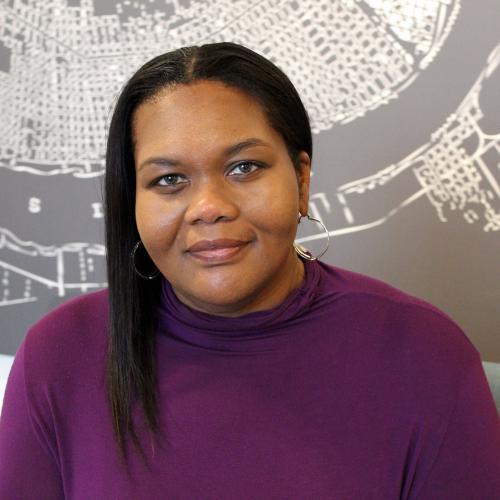Professor refreshes 988 helpline trainings
In 2022, the United States converted its 10-digit National Suicide Prevention Lifeline to a much easier-to-remember crisis helpline: 988. In Louisiana, calls and texts to the 988 helpline are answered by mental health professionals at two in-state call centers. Interim Associate Dean of Academic Affairs and Clinical Associate Professor Candice Beasley, DSW, LCSW-BACS, works with a team of mental health professionals to refresh trainings for those important crisis workers.
The 988 helpline curriculum trains call center employees in best practices for handling the unique crises that Louisiana citizens face and provides trauma- and evidence-informed infrastructure to help callers experiencing suicidal ideation, substance use, or any kind of emotional distress.
The aim of the helpline is threefold: Provide better support to Louisianans in crisis; prevent unnecessary involuntary hospitalization, incarceration, and loss of life; and relieve pressure from the 911 system. Since Dr. Beasley joined the curriculum team in 2023, more than 250 healthcare providers and paraprofessionals have been trained in Louisiana and across the United States.
“Being a lifelong New Orleans community member, I know that we are making a difference when I hear members of my own community tell family and friends who are in crisis that they can call 988 to help, that they don't have to call 911 just yet,” Beasley said.
The success of Louisiana’s 988 helpline is especially moving for Beasley, who was brought to social work through unapologetic advocacy. After watching several family members come out of social services and medical systems more harmed than helped, she committed her life to educating mental health professionals.
“Although I have varied research interests,” Beasley said, “the connecting theme of everything that I do is that everyone deserves holistic healing and decency from professionals who are not scared to be brave.”
As part of her commitment to holistic healing, Beasley works to eliminate power hierarchies from her work by building mental health programming that is not just community-centered but also community-led. She says one of the main challenges 988 responders face during the training program is removing themselves from the position of ‘expert’.
“The moment that you believe you have learned all there is to know, become complicit with your own thoughts and behaviors, force your personal beliefs and values onto those in need – that is the moment you choose to harm your future clients and practice,” Beasley said.
To help drive person-driven decision-making, Louisiana’s 988 curriculum also trains peer support specialists – people who have dealt with mental health and substance use issues and are now stable – in addition to social workers and nurses. This model allows those who contact the helpline to choose whether they want to connect with a mental health professional or a peer who has shared some of their experiences.
Efforts to improve comprehensive mental healthcare access seem to be working. In October, Louisiana’s 988 call centers answered 90% of the calls they received. That’s compared to 64% in June of 2022, when the program was launched. With upwards of 3,000 calls routed to the state’s call centers every month, responders have touched tens of thousands of lives.
“Crisis work is all about basking in the beauty of our profession. We are practitioners of the human spirit,” Beasley said. “It is the social worker who generates hope during times of despair; it is the social worker who helps someone commit to living this life for another day; it is the social worker who may not change the world but who does change someone’s world.”

